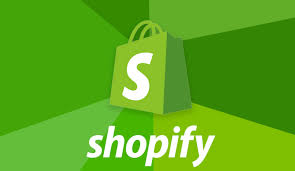
Today’s fast-paced digital environment mostly depends on popular business platforms for companies to properly control operations, interact with consumers, and scale their activities. The industry is brimming with possibilities, ranging from customer relationship management (CRM) systems and project management tools to online retail stores. Still, of the several well-known business systems, which one fits your needs? This article aims to help you compare the top platforms across many different sectors so you can make an informed selection particular to your company objectives.
Kindly define a business platform.
A business platform is an ecosystem or software solution allowing companies to execute a predefined set of basic tasks. Several instances of these are:
This covers project management, electronic commerce, accounting and finance, customer relationship management (CRM), communication and teamwork, and marketing automation.
Selecting the right platform can significantly improve your company’s efficacy, scalability, and overall success.
Reasons Why Choosing the Popular business Platform Is Crucially Important
Using the wrong platform could hinder your workflow, confuse team members, and result in you wasting important time and money. Conversely, a popular commercial platform designed for this purpose can provide the following benefits:
- Help to improve team cooperation
- Streamline processes
- Raise customer satisfaction
- Provide valuable analytics-based insights
- Enable expansion and capacity building
- So support the enhancement of all around performance
Well-known Platform Categories for Corporate Operation
First, let’s review the several kinds of platforms companies usually use; subsequently, we will focus on the most important tools in every category.
1: CRM—client relationship management.
Salesforce

The Pros:
- Advanced artificial intelligence and analytics skills
- Great degree of customizing and close connection with outside tools
Conventions: [Cons]
- Small businesses find it costly as well
- The learning curve slopes sharply
The best prospects for this program are medium- to large-sized companies that need strong reporting and considerable customization. The program is included in popular business platforms.
HubSpot
The Pros:
- There is a free plan accessible
- It is easy to use
- Perfect for application in inbound marketing
Cons: [ Cons ]
- Less possibilities for personalizing lower-tier plans
Startups and small businesses are looking for a simple-to-use system for managing customer relationships. The program is included in popular business platforms.
2: “e-commerce platforms.”
💒 Shopify is available.

The Benefits:
- Easy installation
- Beautiful, striking designs
- Exceptional customer help
Drawbacks: [Cons]
- Limited choices for customizing on basic plans
- Transaction fees on gateways supplied by outside parties
It’s perfect for small to medium-sized internet company owners and business owners overall. The program is included in popular business platforms.
WooCommerce
The Advantages:
- There are no transaction costs
- The platform runs on PowerShell
- It is rather flexible and open-source
Cons: [Cons]
- Needs technical setup and hosting
- Also requires a lot of maintenance
The greatest choices are those companies either looking for total control or already using PowerShell. The program is included in popular business platforms.
3: Management of projects are those ones.
👋 Translation: Trolley
The Benefits:
- Excellent for visual planning
- A free plan already in use
- A drag-and-drop interface that is straightforward for usage
Cons: [Conventions]
- Limited for the management of complex projects
The finest applicants for this layout include creative teams and freelancers who prefer a visual board style. The program is included in popular business platforms.
Asana
The Benefits:
- You have access to features including powerful team collaboration
- Automation
- Many project views—list, board, and calendar
Con: [Cons]
- New users could find their learning curve to be minor
Perfect for groups in charge of managing several challenging initiatives. The program is included in popular business platforms.
4: Communication and teamwork.
👬 Slack

The Advantages:
- Real-time messages given
- Integration with a wide range of technologies
- Channels for the team organization
Cons: [Cons]
- One could find an overwhelming presence of too many channels
The perfect prospects are companies that give fast communication and working remotely top importance. The program is included in popular business platforms.
Microsoft Teams
The Pros Are:
- Integration entirely seamless with Microsoft 365
- Video conferences and chats on one platform
- Security suited for a company on one platform
Cons: [Cons]
- The user interface could seem jumbled
The best candidates are companies already using Microsoft products. The program is included in popular business platforms.
5: Accounting and finance.
Recording Software: Money
The Benefits:
- Usually used and depended upon
- Hosted in the cloud lets one interface with banking and payroll
Con: [Cons]
- Perhaps overly costly for smaller businesses
Ideal candidates for this product are small to medium-sized companies needing complete accounting capabilities. The program is included in popular business platforms.
📊 Xero
The Benefits:
- Simple dashboard
- Excellent automation tools
- Unlimited users across all plans
- Powerful automation tools
Cons: [Conventions]
- Less features to monitor supplies than others
The perfect applicants are businesses that need scalable and basic accounting tools. The program is included in popular business platforms.
6: Marketing automation.
📧 MailChimp.

The Advantages:
- There is a free tier for new companies
- Email marketing is easy to set up
- Instruments essential for automation
Cons: [ Cons ]
- There is only limited sophisticated automation available from the free plans
Under optimal conditions, startups and small enterprises are diligently compiling their email addresses. The program is included in popular business platforms.
I pay ActiveCampaign membership dues.
The Advantages:
- Behavioral targeting
- Customer relationship management and sales tools
- Capabilities for strong automation
Cons: [Cons]
- A far more steep learning curve
Growing businesses that are committed to involving their consumers will find a perfect fit for this product.
A Comparative Table Based on Most Often Used Business Platforms
| Category | Platform | Best For | Key Character | Free Plan |
|---|---|---|---|---|
| CRM | Salesforce | Large enterprises | Advanced customization | No |
| CRM | HubSpot | Small businesses | Inbound marketing features | Yes |
| E-commerce | Shopify | Online retailers | Easy setup | No |
| E-commerce | WooCommerce | WordPress users | Full customization | Yes |
| Project Management | Trello | Freelancers, creatives | Drag-and-drop interface | Yes |
| Project Management | Asana | Teams with complex workflows | Multiple project views | Yes |
| Communication | Slack | Remote teams | Real-time messaging | Yes |
| Communication | Microsoft Teams | Microsoft 365 users | Integrated collaboration | Yes |
| Accounting | QuickBooks | SMBs needing full accounting | Financial reporting | No |
| Accounting | Xero | Businesses with automation needs | Unlimited users | No |
| Marketing Automation | Mailchimp | Email marketing beginners | Email builder | Yes |
| Marketing Automation | ActiveCampaign | Advanced marketers | Behavioral automation | No |
How should one choose the platform that is best suited for them?
Choosing the most successful popular business platform requires some reflection on your part. One can find a significant list of factors here:
1. The company’s size and present level of development
Startups might find that more enticing tools include HubSpot, Trello, or Mailchimp, all of which are either free or inexpensive.
or cheap. More sophisticated systems like Salesforce or ActiveCampaign could be helpful for companies that already exist.
2. The business sector
Retail stores should have first attention for e-commerce sites like Shopify and WooCommerce. Service-based companies would find more use for customer relationship management (CRM) technologies and project management systems. The program is included in popular business platforms.
3. Integration Requirements
With the apps you now use—Gmail, Outlook, and PowerShell—what kind of integration does the platform have with them?
- Check whether options exist for both native and outside integration.
4. User Friendliness
Your staff should be able to pick the platform quickly and adapt. Look for initiatives including easily navigable interfaces and instructions.
5. The Budget
Free and excellent are quite good for businesses in their early years. Calculate the return on investment (ROI) before to joining premium services.
Future Emerging Patterns in Corporate Platforms
The digital scene is undergoing constant transformation. Some tendencies impacting the expansion of popular corporate platforms in the future are:
- More platforms have made artificial intelligence and automation accessible with their ability for insights, suggestions, and automation.
- One-stop solutions: Among companies, platforms combining project management, marketing, and customer relationship management (CRM) are growingly popular.
- Salesforce and other customizable and modular tools allow you to extend their capabilities to fit your expanding company.
- Platforms keep improving their support of hybrid and remote teams by means of flawless communication and file sharing.
Some Last Words
The well-liked business platform ideal for you will satisfy your specific company needs, financial restrictions, and long-term goals. While there is no universally applicable solution, this analogy offers a robust starting point for your research. Investing in the right tools now can help you succeed tomorrow, whether you are launching a startup or growing an established company. Popular business platforms include the program.
Selecting a platform requires thorough investigation of all your options, utilization of any free trials, and constant awareness of future scalability. Making the right choice will simplify your procedures and position your business for continuous development.
Want to know about “Top 5 Free Keyword Tools and How They Compare.“

